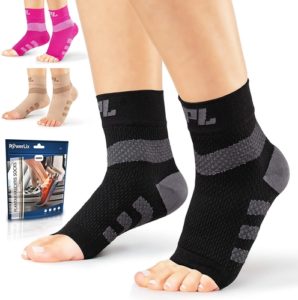Medication for Diabetic Neuropathy
Diabetes is a lifelong condition affecting your insulin and blood sugar levels. One of the affiliations of diabetes is diabetic neuropathy. This condition often affects nerves in one’s feet or legs.
As with most medical conditions, diabetes and its side conditions have many remedies and medications. Below is a medication for diabetic neuropathy guide.
What is Diabetic Neuropathy?

Depending on the nerves affected, diabetic neuropathy symptoms range from numbness and pain in the feet to complications in the digestive system, heart, and blood vessels.
The American Diabetes Association recommends immediate screening for diabetic neuropathy once you are diagnosed with type 2 diabetes. For type 1 diabetes, screening is recommended five years after diagnosis.
Unfortunately, diabetic neuropathy has no known cure. Therefore, the goal of seeking treatment and medication for diabetic neuropathy include:
- To relieve pain
- To manage complications and restore functions
- A slow progression of the disease.
Diabetic Neuropathy Medication
Before starting any medication for diabetic neuropathy, consult with your doctor to discuss the safety and potency of the medication. When managing and treating diabetic neuropathy, you will come across natural and pharmaceutical remedies.
Over-the-Counter Medication for Diabetic Neuropathy
OTC medication provides pain relief, especially if your diabetic neuropathy is in its early stages. However, avoid taking these without first consulting your doctor. For nerve pain relief, you can use topical medications, for example, Capsaicin cream, which is applied directly to the skin to reduce pain.
Some examples of FDA-approved prescription medications that are used to treat diabetic neuropathy include:
- Lyrica
- Cymbalta
- Nucynta.
Prescription medication available for diabetic neuropathy are:
Anti-depressants: These medications block pain messages from getting to your brain
Anti-seizures (anti-epileptics and anti-convulsants): These slow down the nerve signals heading to your brain, subsequently hindering pain messages.
Opioids: These are highly potent analgesics. Opioids provide immediate relief from intense pain. However, opioids can be highly addictive and should be used under a doctor’s strict medication.
Topical medication: A common topical prescription medication is a lidocaine patch that relieves pain, especially on the feet.
TENS: This is an FDA-approved non-medication treatment for diabetic neuropathy. The SENSUS Pain Management device
Natural Remedies for Diabetic Neuropathy

Vitamins
A few cases of diabetic neuropathy are related to vitamin deficiencies. A vitamin deficiency can cause significant nerve damage.
Generally, vitamin B is vital for your nerve health. While you can get vitamin B from supplements, a natural alternative is to consume Vitamin B-rich meals. Another functional vitamin is vitamin D that also hinders nerve pain.
According to the Foundation for Peripheral Neuropathy, the vitamins and supplements that can help you manage diabetic neuropathy include:
- Vitamin E
- B-complex vitamins
- Acetyl-l-carnitine (ACL)
- Alpha-lipoic acid
- Omega-3 fatty acids
- Glutamine
- Magnesium and calcium
- N-acetylcysteine.
Cayenne Pepper
Cayenne pepper contains capsaicin which is used in topical creams for its pain-relieving properties. Capsaicin reduces the intensity of pain signals sent via the body. Adding cayenne pepper into your diet can help manage diabetic neuropathy.
Acupuncture
This ancient treatment method promotes natural healing by stimulating your body’s pressure points. It triggers the nervous system to release chemicals that can alter the pain threshold or experience. Moreover, it promotes an energy balance in your body that affects your emotional well-being.
Dietary Changes to Help Diabetic Neuropathy
Dietary changes that lower your blood sugar levels ease or prevent the symptoms of neuropathy. A fiber-rich diet or one low in simple carbs prevents blood sugar spikes. Moreover, avoiding the following products might help prevent diabetic neuropathy:
- Sweets
- Processed snacks
- White bread products, including pasta.
Alternative dietary changes you can make include:
- Reducing or eliminating alcohol intake
- Limiting intake of trans or saturated fats
- Consuming fewer than 2,300mg of sodium daily
- Eating high fiber foods
- Eating antioxidant-rich foods such as fatty fish, walnuts, blueberries, and flaxseed oil, which fight inflammation
Bottom Line
There is no known cure for diabetic neuropathy. However, the above medication for diabetic neuropathy can help diabetic patients manage their condition efficiently. Consult your doctors before using any peripheral neuropathy remedy, whether natural or pharmaceutical, to avoid complications.



